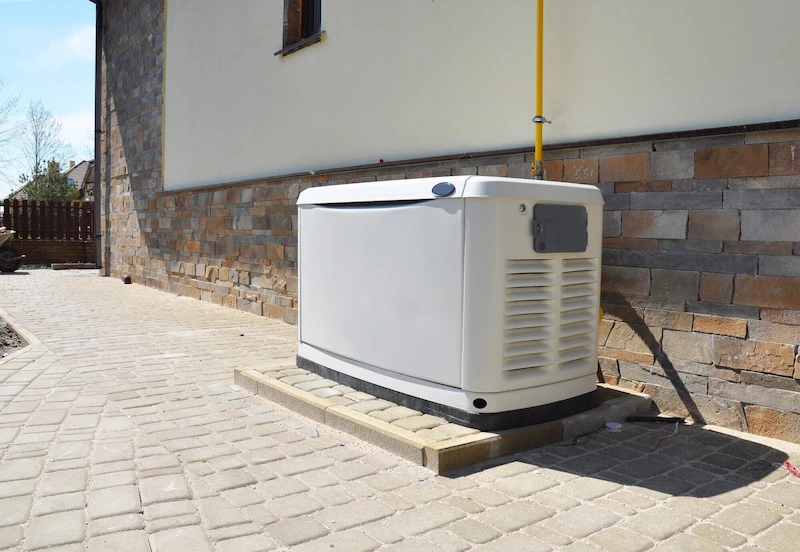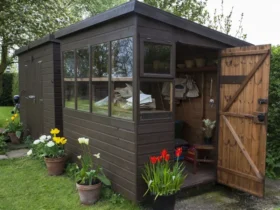In a world where natural disasters and power outages are becoming increasingly common, homeowners are seeking reliable backup power solutions. Propane generators are emerging as a popular choice due to propane’s long shelf life and clean-burning nature. But like any equipment, a propane generator needs care and attention to keep it running efficiently and safely.
This comprehensive guide will walk you through the essentials of a propane generator for house maintenance and safety operations. Read on.
Understanding Your Propane Generator
Before we get into the nitty-gritty of maintenance, it’s essential to understand how your propane generator works. Unlike gasoline, propane doesn’t deteriorate over time, making it an ideal choice for standby generators that sit for long periods without use. Propane generators are highly efficient and emit fewer toxins, making them an environmentally friendly option.
Key components of a propane generator include:
Engine
The engine is the heart of the generator and requires regular maintenance to ensure it operates seamlessly. This includes oil changes, filter replacements, and occasional tune-ups.
Check with your generator’s manual for specific maintenance schedules. This is very important even in a 10 kW generator.
Propane Regulator
The regulator controls the flow of propane into the generator. A malfunctioning regulator can result in an under or over-supply of fuel, adversely affecting generator performance. Check the regulator thoroughly for wear and tear. When you shop generators make sure to check the regulator.
Automatic Transfer Switch (ATS)
The ATS is what signals your generator to start up when it detects a power outage. The ATS must be in working order to ensure timely power restoration. Test this regularly using the manual provisions in your generator’s system.
Routine Maintenance Checklist
Regular maintenance is the key to ensuring your generator is ready when you need it. Here’s a simple checklist to keep your propane generator in top shape:
Perform Regular Inspections
Visually inspect your generator for leaks, broken parts, or signs of corrosion. Be sure to check the propane lines and connections, as leaks can be particularly dangerous in a confined space like a generator enclosure.
Change the Oil
Just like a car, a propane generator needs regular oil changes. Old oil can lead to sludge buildup, which can damage the engine. Check the oil level every 50 hours of operation and change it based on your manufacturer’s recommendations.
Check and Replace the Air Filter
A clogged air filter can lead to poor engine performance and higher fuel consumption. Check your filter regularly and replace it as needed, typically every 50-100 hours of operation.
Test the Batteries
Most propane generators have a battery for starting the engine. Ensure the battery terminals are clean and tight to avoid corrosion and have the battery tested at least once a year, or as recommended by the manufacturer.
Service the Cooling System
Generators can overheat, causing damage to the engine. Ensure the cooling system is in good condition, with no blockages or leaks. Service the system as per the manufacturer’s guidelines.
Safety First: Operating Your Propane Generator
Safety should always be your top priority when operating a propane generator. Here’s what you need to know to keep your home and family safe.
Proper Ventilation
Propane generators produce carbon monoxide, a colorless, odorless gas that can be deadly. Operate your generator in a well-ventilated area to ensure you and your family are not exposed to dangerous levels of carbon monoxide.
Know How to Shut It Off
In an emergency, you may need to shut off your generator quickly. Ensure you and other family members know how to do this safely. Familiarize yourself with the shut-off procedure and location of the shut-off valve.
Keep Flammable Materials Away
Propane is a flammable gas, so it’s critical to keep any flammable materials away from the generator and its exhaust. This includes gasoline, oil, and any other combustibles.
Use the Right Size Extension Cord
If you’re running appliances off your generator, use the right size and type of extension cord. Using a cord that’s too small can lead to overheating and fire hazards.
Advanced Maintenance Tips
For the avid DIY-er, there are advanced maintenance tasks you can tackle to keep your generator in pristine condition. Here are some propane powered generator maintenance tips.
Spark Plug Maintenance
Clean or replace spark plugs regularly to maintain efficient combustion in the generator’s engine. Faulty spark plugs can lead to hard starting and poor operation, so it’s a good idea to include them in your maintenance routine.
Fuel System Inspection
Over time, the fuel lines and components in the generator can become clogged or damaged. Inspect the entire fuel system, including the tank, lines, and carburetor, for any issues that could affect performance.
Perform Load Tests
Every few months, perform a load test to ensure your generator can handle the appliances and systems it will be powering. This also helps you ensure everything is working as expected before an actual power outage.
You may like – Can You Use Bleach on Wood Floors?
The Importance of a Professional Touch
While regular maintenance can be handled by the homeowner, there are certain tasks best left to professional indoor electrical services. These include:
Comprehensive Tune-Ups
A professional can perform a more comprehensive tune-up, including adjusting the generator’s settings. This is to ensure it’s running optimally and efficiently.
Electrical System Checks
The wiring and electrical components of your generator should be tested regularly. This is to ensure they are in good working order and to prevent shorts or electrical fires.
Critical Component Inspections
Professionals have the expertise and the tools to inspect critical engine and generator components for wear and tear. This ensures that they’ll function when you need them most.
Take Care of Propane Generator for House Regularly
A propane generator for house can be a lifesaver during a power outage, but only if it’s well-maintained and operated safely. By following the tips in this guide, you’ll be well on your way to ensuring that your generator is ready to provide the power you need at a moment’s notice.
Remember, when it comes to the safety and security of your home, there is no such thing as too much preparation. Keep your generator in top condition, and enjoy peace of mind knowing you’re prepared for anything.
Explore our blog for more informative articles!






